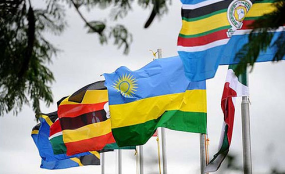By Natalie Campbell-Rodriques
Regional integration is still a highly discussed topic with the Brexit vote still fresh in minds across the globe. Of course, over two months on, conversations have moved beyond shock, joy and dismay. The focus is currently on the potential effects of the decision made by the British people.
On surface, it may seem as though African nations will not be directly affected once the British Prime Minister triggers Article 50. While this article will not focus on the potential consequences, it is important to note that there will be both positive and negative aftereffects.
There are analysts, economists and policymakers sharing their thoughts as to the impact on Africa as a region and specifically for individual countries. But what the Brexit vote should teach us is that no one can accurately make predictions about such issues.
It is within this vein that the question of the East African Community (EAC) comes to the table.
Should integration in this region still be a priority? Should the pace of the integration movement be hastened or slowed down?
Signs coming out of Arusha suggest that integration for the region is still on course and why shouldn't it be? The revived Community, which is a few years away from its twenty-first birthday, has moved somewhat slowly and that has worked well so far.
There have been criticisms over the years that the process should move faster but to what avail? With a cumulative population of approximately 146 million it makes sense for there to be a union among the member states but there is no rush for it to be defined as desired by economists and analysts.
The Brexit vote has left questions as to the fragility of integration among countries but it would be hasty to assume that regional integration does not work.
Each region is different as should the tenets and patterns of regional agreements. The cookie cutter formulas and the set in stone timelines should be ignored and the process be allowed to continue growing in an organic though structured manner.
It is a good sign that the EAC's integration process has managed to implement three of four stages from its Development Strategy: the Customs Union, Common Market and the Monetary Union.
These first three stages of the integration process lay the foundation for the fourth: the Political Federation. There is talk in some quarters that the political federation should be fast-tracked, but to what end?
With two member states expecting to have national elections in 2017, waiting may not be a bad idea. Why not place the focus on delivering on the first three phases?
The decision to make Kiswahili the second official language of the East African Legislative Assembly, the current plans to phase out the dollar as the cross-border trade currency as well as working together to capitalise on the African Growth Opportunity Act (AGOA) are just a few of the initiatives which, if harnessed, could truly change the lives of individual citizens within the EAC.
While Kiswahili is spoken in all the member states it is most pervasive in Tanzania and Kenya with the other nations having a smaller portion of their population using the language.
With only a segment of the bloc's population properly speaking and using Kiswahili, there is need to increase the numbers which in itself requires policy initiatives as well as strategy development and implementation.
Phasing out the dollar for cross-border trade across the EAC partner states will be a game changer for small- and medium-sized businesses. The savings gained from being able to trade in one's own currency is expected to increase income as well as expand the trading industry in all countries involved.
For this plan to work, there will need to be education campaigns as well as changes to banking laws, among other things. Again, this is an area which needs specific attention in order to facilitate successful implementation.
While different member states have different arrangements within AGOA, individual EAC partner states, and the bloc as a whole, stand to benefit.
There is much work to be done with regards to regional integration for East Africa but the Community needs to continue working at its own pace. Delivering on plans which positively affect the livelihood and existence of citizens is more important than meeting timelines.

